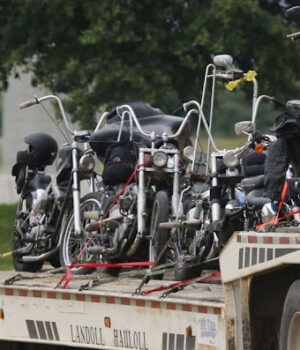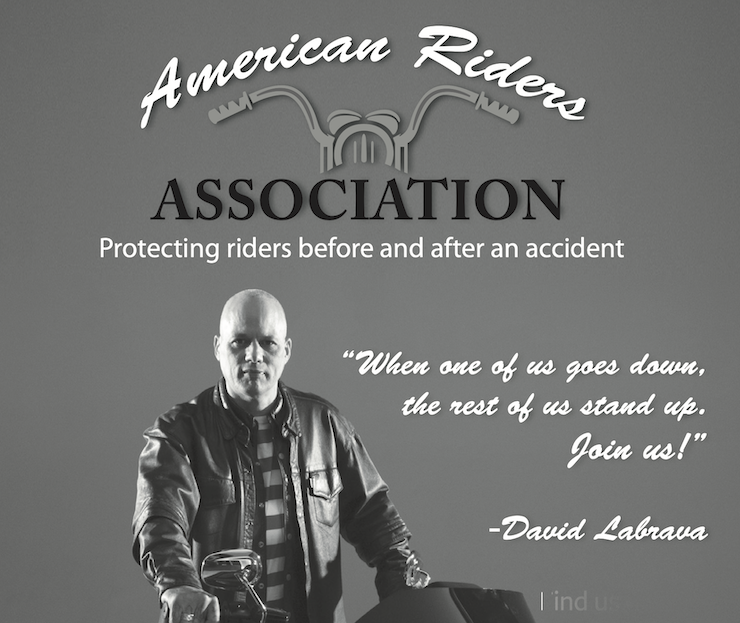Here’s the big question: by what right does the government think it can rip away someone’s property? The Fifth Amendment lays it out plain: “No person shall…be deprived of life, liberty, or property, without due process of law,” and “nor shall private property be taken for public use, without just compensation.” So, how can they take what’s ours, without proof, without a crime, just on the claim that our property itself is somehow guilty?
Lately, they’ve been coming after motorcycle club patches under civil forfeiture laws, and bikers everywhere are watching. This isn’t some new trick. Civil forfeiture started centuries ago in British maritime law, but in the ’80s, it turned into a sledgehammer against drug lords, crushing them by seizing anything and everything they owned. But now? They’re taking that same hammer to bikers, hoping they can shake clubs down.
Today’s “civil forfeiture” laws give police a powerful tool: they can seize property simply on suspicion that it’s tied to a crime. Unlike criminal forfeiture, which demands a conviction, civil forfeiture doesn’t require the owner to be charged with or found guilty of anything. This means people can lose cash, cars, homes, or other property with no trial, no charges—just an officer’s claim of “reasonable suspicion.”
Once the property is seized, law enforcement agencies often keep, use, or sell it, with a cut of the assets going right back into their budgets. And since no hearing is required before taking the property, due process is effectively bypassed. Civil forfeiture’s original purpose was to target drug cartels and organized crime, but its use has spread, making it one of the most controversial law enforcement practices in the U.S. today. Current civil forfeiture laws are practically a cash cow for law enforcement. They’re set up so that cops can snatch your property—cash, bike, car, you name it—just on the suspicion it might be tied to a crime. They don’t need proof, a trial, or even charges to take what’s yours. And guess who benefits? That’s right—the very departments doing the seizing keep a big chunk of it. This system turns policing into profit hunting, putting cash over the fair administration of justice.
What’s worse, it hits hardest on people who don’t have deep pockets to fight back, especially communities of color and lower-income folks. It’s a double hit: rights and property stripped away in one sweep. And if state laws try to put the brakes on this abuse? Civil forfeiture has plenty of loopholes to sidestep them, letting the system keep on rolling over due process and basic property rights. According to the Department of Justice, in 2023 approximately $10,157,069 was collected in civil and criminal asset forfeiture actions.
Back in 1984, the law created the “equitable sharing” deal, allowing state and local police to partner up with federal agents to split the spoils of property seizures. Over the years, the Supreme Court has largely backed this practice, ruling that civil forfeiture doesn’t automatically violate constitutional rights. A 1993 decision (Austin v. United States) did push back a little, saying that some forfeitures could be seen as excessive fines, but the core principle of civil forfeiture still stood. In 1996, the Court ruled that you could be prosecuted for a crime and still have your property taken without it being considered “double jeopardy”—meaning it wouldn’t count as being punished twice for the same offense. But in 1999, they did set a limit, saying the seizure couldn’t be “grossly disproportional” to the crime.
On the legislative side, things have only gotten worse for property owners. Since the 1990s, the number of federal statutes that permit government forfeiture has doubled, going from 200 to 400. This has made it easier for law enforcement to seize assets not just from convicted criminals, but also from people who’ve never been charged with anything. So, what started as a tool to target criminal empires has expanded, and now it’s being used to shake down anyone in the wrong place at the wrong time.
Despite the legal framework backing civil forfeiture, it’s still being misused and abused by law enforcement across the country. Whether it’s used to target street-level drug dealers or to take down motorcycle clubs like the Mongols MC back in 2013, more and more people are starting to fight back. Americans from both sides of the political spectrum are starting to wake up to the dangers of civil forfeiture, with members of Congress introducing bills to reform federal laws, and state legislatures pushing for changes as well.
On one side, proponents argue that civil forfeiture is a necessary tool to combat organized crime, allowing authorities to seize criminal assets, which can then be reinvested into the fight against illegal activity. The idea is that by hitting criminals in the wallet, you can dismantle their operations while giving law enforcement a financial boost. But critics point out the darker side of this system. They argue it creates a system of incentives that encourages corruption, entangles innocent property owners, and violates basic due process. Under civil forfeiture, people can lose their property based on suspicion alone—presumed guilty until proven innocent, with little legal recourse to get back what’s been taken.
Here’s the deal: without civil forfeiture, law enforcement couldn’t seize that plane a drug dealer’s using to move weight. But with these laws, they can grab your bank account just because you deposited a chunk of cash. Got too much cash on you? It’s theirs now. They can even snatch your bike if they think it’s tied to something illegal—no proof, no trial, just an officer’s word.
We all know this system’s been abused, but the big question is: Is it really worth it? Does ripping people off without a real trial or any solid proof keep us safer, or is it just another way to screw over innocent folks? The problem is, good people are getting caught in the crossfire, while law enforcement’s making bank off it. It’s a dangerous game, and one hell of a slippery slope.











